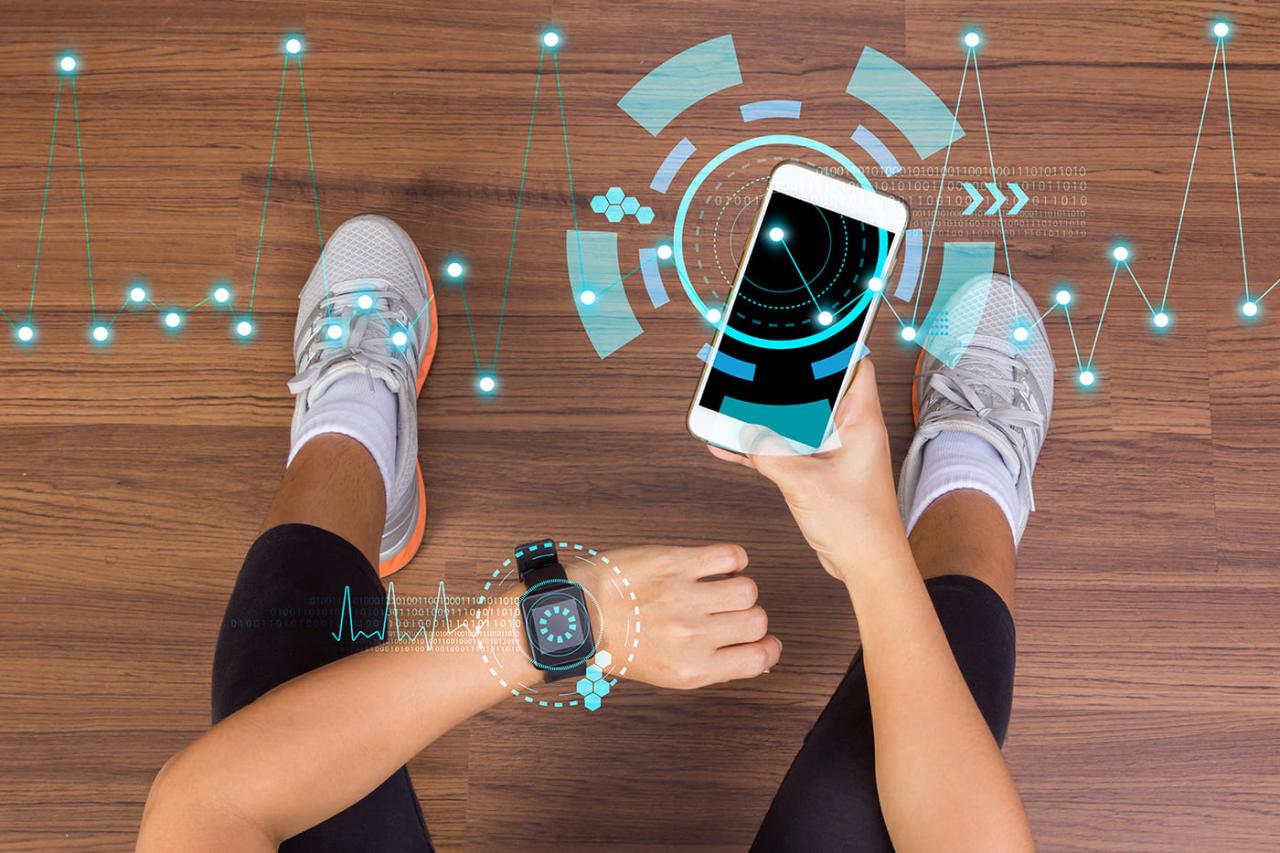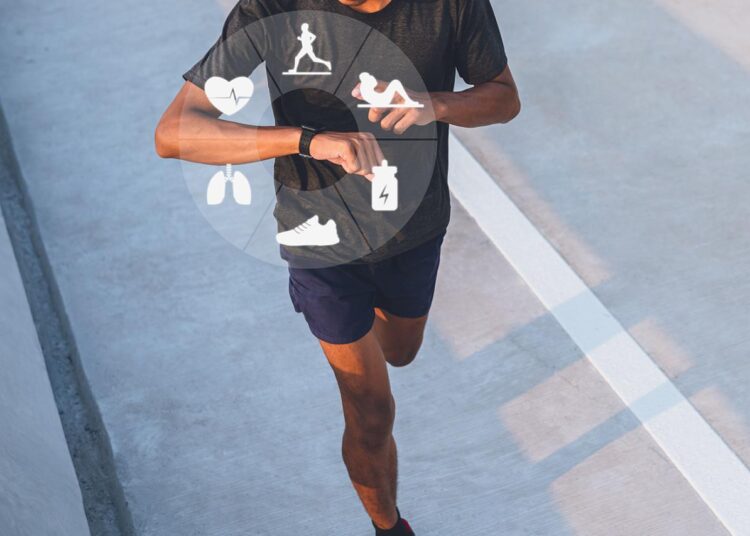The pursuit of optimal health and well-being has long been a fundamental human endeavor. In an era defined by rapid technological innovation, this pursuit is being fundamentally reshaped. Wellness technology has emerged as a transformative force, moving beyond traditional healthcare to empower individuals with unprecedented tools for monitoring, managing, and proactively improving their physical and mental health.
From wearable devices that track every heartbeat to AI-powered platforms offering personalized dietary advice, these advancements are democratizing access to health insights and shifting the paradigm from reactive illness treatment to proactive wellness cultivation. This comprehensive article delves into the cutting-edge of wellness technology, exploring its diverse applications, the scientific principles underpinning its efficacy, its profound impact on personal health management, and the future trajectory of this rapidly evolving field.
The Dawn of Personalized Wellness

The shift towards personalized wellness is perhaps the most significant impact of modern technology. Gone are the days of generic advice; now, insights are tailored to the individual.
A. Wearable Devices
Wearable technology has moved beyond simple step counting to become sophisticated health monitoring systems worn on the body.
- Fitness Trackers: These devices continuously monitor activity levels, steps taken, distance covered, and calories burned. More advanced models include features like stair climbing and active minutes. They provide a tangible representation of daily movement, encouraging adherence to activity goals.
- Smartwatches: Beyond basic fitness tracking, smartwatches integrate advanced sensors to provide a holistic view of health.
- Heart Rate Monitoring: Continuous heart rate tracking provides insights into resting heart rate (a key indicator of cardiovascular fitness), heart rate zones during exercise, and recovery heart rate.
- ECG (Electrocardiogram) Capabilities: Some smartwatches can detect signs of atrial fibrillation (AFib), a common heart arrhythmia, enabling early detection and intervention. This capability has been cleared by regulatory bodies in various countries, making it a powerful diagnostic tool for consumers.
- Blood Oxygen (SpO2) Tracking: Measuring oxygen saturation levels, important for monitoring respiratory health, sleep apnea, and acclimatization at altitude.
- Sleep Tracking: Analyzing sleep cycles (light, deep, REM), duration, and disturbances to provide a “sleep score” and insights for improving sleep quality. Poor sleep significantly impacts physical and cognitive function, making this a critical metric for overall wellness.
- Skin Temperature Sensors: Emerging in some devices, these can track subtle changes that might indicate illness, ovulation, or general wellness trends.
- Smart Rings: Offer discreet and often more accurate physiological tracking due to their close contact with the skin, providing data on sleep, heart rate variability (HRV), and body temperature.
- Continuous Glucose Monitors (CGMs) for Non-Diabetics: While traditionally for diabetics, CGMs are increasingly used by health-conscious individuals to understand their real-time blood sugar response to different foods, exercise, and stress, enabling optimized dietary choices for energy and metabolic health.
B. Smart Scales
Modern smart scales do more than measure weight; they offer a comprehensive body composition analysis transmitted directly to your smartphone.
- Body Fat Percentage: Estimates the proportion of fat to lean body mass, a more accurate indicator of health than just weight.
- Muscle Mass: Tracks changes in muscle, crucial for fitness goals and overall metabolic health.
- Bone Mass and Water Percentage: Provides a more complete picture of bodily makeup.
- BMI (Body Mass Index): Calculates BMI, offering a general indicator of weight status relative to height.
C. Smart Apparel and Footwear
Technology is being seamlessly integrated into clothing and footwear for enhanced tracking and feedback.
- Smart Shoes: Embed sensors that analyze gait, stride length, cadence, and even provide real-time coaching feedback to improve running form and prevent injuries.
- Smart Clothing: Garments with embedded sensors to track muscle activity (EMG), posture, breathing patterns, or more precise heart rate data directly from the chest.
Leveraging Data for Deeper Insights
The true power of wellness technology lies not just in collecting data, but in analyzing it to provide actionable insights.
A. AI and Machine Learning
Artificial Intelligence (AI) and Machine Learning (ML) algorithms are the brains behind many wellness tech innovations, transforming raw data into personalized recommendations.
- Personalized Coaching and Training Plans: AI analyzes an individual’s performance data, recovery metrics, and goals to generate dynamic training plans that adapt to progress and readiness. For instance, if HRV indicates fatigue, the AI might suggest a lighter workout or active recovery.
- Nutritional Recommendations: AI can analyze dietary intake (often logged manually or through image recognition), activity levels, and personal health goals to suggest optimized meal plans, recipes, and nutrient timing. Some even consider genetic predispositions for tailored advice.
- Sleep Optimization: AI analyzes sleep patterns and environmental factors to suggest personalized interventions, such as ideal bedtime routines, ambient temperature, or soundscapes for improved sleep quality.
- Early Risk Detection: ML models can identify subtle patterns in physiological data that might indicate an increased risk of certain health conditions (e.g., cardiovascular issues, stress-related problems) before symptoms become apparent, prompting users to seek professional medical advice.
B. Biometric Feedback and Biofeedback Training
Using real-time physiological data to help individuals gain conscious control over involuntary bodily functions.
- Heart Rate Variability (HRV) Training: Devices measure HRV, a key indicator of autonomic nervous system balance and recovery. Biofeedback apps guide users through breathing exercises to consciously improve their HRV, promoting relaxation and stress resilience.
- Breathwork Sensors: Devices that track breathing patterns and offer guided exercises to improve respiratory efficiency, reduce anxiety, and enhance focus.
- EEG (Electroencephalography) Headbands: Used in some meditation and focus apps, these devices measure brainwave activity, providing real-time feedback to help users achieve specific mental states (e.g., calm, focus).
Wellness Technology for Mental and Emotional Well-being
Beyond physical health, technology is playing an increasingly vital role in supporting mental and emotional wellness.
A. Mindfulness and Meditation Apps
These apps provide guided meditations, breathing exercises, and sleep stories to help users reduce stress, improve focus, and cultivate mindfulness. Features often include:
- Personalized Programs: Tailored content based on user goals (e.g., stress reduction, better sleep, focus).
- Progress Tracking: Monitoring streaks, meditation duration, and subjective well-being improvements.
- Community Features: Some apps offer community forums or group challenges to foster a sense of connection.
B. Digital Therapeutics (DTx) for Mental Health
DTx are evidence-based software programs that deliver medical interventions to patients directly.
- Cognitive Behavioral Therapy (CBT) Apps: Delivering structured CBT programs to help manage anxiety, depression, insomnia, and other conditions, often as a supplement to traditional therapy or as a standalone intervention. These are often regulated medical devices.
- Stress Management Platforms: Apps offering techniques like progressive muscle relaxation, guided imagery, and gratitude journaling to help users cope with daily stressors.
C. Virtual Reality (VR) and Augmented Reality (AR) for Well-being
VR and AR offer immersive experiences for mental and physical health.
- VR for Relaxation and Stress Reduction: Immersive virtual environments (e.g., serene natural landscapes) for meditation and escapism, helping to reduce anxiety and promote calm.
- VR for Pain Management: Used in some clinical settings to distract patients from acute or chronic pain, especially during procedures.
- AR for Gamified Fitness: Overlaying digital elements onto the real world to make exercise more engaging (e.g., virtual challenges on a running route).
Wellness Technology in Specific Domains

The applications of wellness technology extend into various specialized areas, transforming how we approach different aspects of health.
A. Nutrition and Hydration Tracking
- Smart Water Bottles: Track water intake throughout the day and send reminders to hydrate, often syncing with apps to show progress against hydration goals.
- Food Tracking Apps: Databases of foods allow users to log meals, track calories, macronutrients (proteins, carbs, fats), and micronutrients (vitamins, minerals). Some use image recognition for easier logging.
- Personalized Supplementation Services: Companies using blood tests, DNA analysis, and lifestyle questionnaires to recommend a tailored regimen of vitamins, minerals, and other supplements, delivered directly to the consumer.
B. Home Fitness and Smart Equipment
The rise of connected fitness equipment has brought the gym experience into the home.
- Smart Treadmills and Bikes: Integrate screens with live or on-demand classes, virtual scenic routes, and personalized coaching that adjusts resistance or incline based on performance.
- Smart Mirrors: Offer interactive workout classes, displaying the user’s reflection alongside an instructor, providing immediate feedback on form.
- Connected Strength Equipment: Dumbbells, kettlebells, or resistance machines with embedded sensors that track reps, sets, weight, and provide form correction.
C. Posture and Ergonomics Solutions
Technology to combat the negative effects of sedentary modern lifestyles.
- Smart Posture Correctors: Wearable devices that vibrate or provide feedback when slouching, encouraging better spinal alignment.
- Smart Office Chairs/Desks: Integrate sensors to monitor sitting posture, encourage movement, and remind users to stand or take breaks.
D. Environmental Health Monitoring
Understanding the impact of surroundings on well-being.
- Air Quality Monitors: Devices that track indoor air pollutants (e.g., VOCs, particulate matter) and allergens, providing insights to improve indoor air quality for better respiratory health.
- UV Trackers: Wearable sensors that monitor UV exposure to help prevent sunburn and reduce skin cancer risk.
Challenges and Ethical Considerations
The rapid growth of wellness technology presents both exciting opportunities and significant challenges that need careful navigation.
A. Data Privacy and Security
The collection of highly personal health data raises critical concerns.
- Data Breaches: The risk of sensitive health information falling into the wrong hands.
- Misuse of Data: How companies collect, share, and potentially monetize personal health data for advertising or other purposes. Robust regulations like GDPR and HIPAA are crucial but require constant adaptation.
- Data Ownership: Who truly owns the health data generated by these devices?
B. Accuracy and Scientific Validity
Not all wellness tech is created equal, and claims can sometimes outpace scientific evidence.
- Sensor Accuracy: The reliability of data from consumer-grade wearables compared to medical-grade devices.
- Evidence-Based Claims: Ensuring that wellness products and services are backed by rigorous scientific research, not just anecdotal evidence or marketing hype.
- Over-Reliance on Technology: The risk that individuals might overly rely on data from devices without consulting healthcare professionals or developing intuitive self-awareness.
C. Digital Divide and Accessibility
While technology can democratize health, it can also exacerbate existing inequalities.
- Cost: Many advanced wellness technologies can be expensive, limiting access for lower-income individuals.
- Digital Literacy: Not everyone has the technical skills or internet access required to effectively use these devices and platforms.
- Language Barriers: Ensuring applications and interfaces are available and culturally relevant in diverse languages.
D. The Paradox of Monitoring
For some, constant monitoring can lead to anxiety or obsession rather than well-being.
- Data Overload: Too much data can be overwhelming, leading to confusion or anxiety about metrics.
- Orthorexia (Unhealthy Obsession with Healthy Eating): Excessive tracking of food intake can sometimes lead to unhealthy eating patterns or disordered eating.
- Performance Pressure: The constant drive to hit targets or maintain “perfect” metrics can lead to stress and burnout, counteracting the purpose of wellness.
The Future Landscape of Wellness Technology
The trajectory of wellness technology points towards even more integrated, intelligent, and proactive solutions.
A. Hyper-Personalization Through Genomics
Integrating genetic data with lifestyle data to offer truly individualized recommendations for nutrition, exercise, and preventative care. Understanding how an individual’s unique genetic makeup influences their response to diet and exercise will lead to unprecedented levels of precision.
B. Proactive and Predictive Health Management
AI will become even more sophisticated at identifying subtle shifts in biometric data that indicate potential health issues before they become serious, prompting timely medical intervention. Imagine devices that can detect early signs of infection, inflammation, or even certain cancers based on continuous monitoring.
C. Integrated Wellness Ecosystems
A seamless integration of various wellness devices, apps, and healthcare providers, creating a holistic and interconnected system for managing all aspects of health. This would involve secure data sharing and interoperability between different platforms.
D. Augmented Reality for Real-Time Health Guidance
AR could provide real-time visual overlays during exercise to correct form, or during daily life to offer prompts for mindfulness, posture adjustments, or healthy choices.
E. Focus on Mental Wellness and Holistic Well-being
Continued innovation in digital therapeutics, immersive relaxation experiences, and AI-powered mental health support will become even more prevalent, addressing the growing global focus on mental health. This will include preventative mental wellness tools for stress and anxiety management, beyond just treatment.
Conclusion
Wellness technology is rapidly transforming our relationship with health, empowering us to become active participants in our own well-being. From the ubiquity of wearables providing real-time physiological insights to the intelligence of AI delivering personalized coaching, these innovations are dismantling barriers to health information and fostering a culture of proactive care.
While challenges related to data privacy, accuracy, and accessibility remain, the undeniable trajectory of this field points towards a future where health management is more intuitive, individualized, and seamlessly integrated into our daily lives. As the boundaries between technology and human well-being continue to blur, wellness technology is not merely advancing; it’s ushering in a new era of empowered health, guiding us towards healthier, more fulfilling lives.









